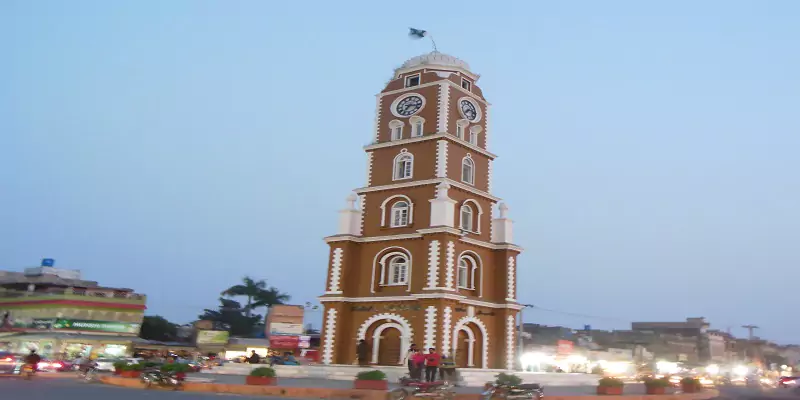Sialkot
Sialkot, a city nestled in the northeastern part of the Punjab province in Pakistan, holds a rich tapestry of history, culture, and economic significance. With a legacy spanning centuries, Sialkot has emerged as a prominent center for industry, commerce, and sports, showcasing a dynamic blend of tradition and modernity.
Sialkot's historical roots can be traced back to ancient times, with archaeological evidence suggesting its existence as far back as 327 BCE during the invasion of Alexander the Great. Over the centuries, it has been a melting pot of various civilizations, including the Persian, Greek, and Mughal empires. The city has witnessed the rise and fall of empires, contributing to its diverse cultural heritage.
During the Mughal era, Sialkot gained prominence as a vital trading center due to its strategic location along major trade routes. The city's historical significance is further highlighted by the presence of various architectural marvels, including the Sialkot Fort, built during the reign of Emperor Akbar.
Sialkot has evolved into an economic powerhouse, particularly known for its thriving sports goods industry. The city is often referred to as the "Sports City of Pakistan" due to its production of high-quality sports equipment, including cricket bats, footballs, and other sporting gear. The craftsmanship and dedication of the local artisans have earned Sialkot global recognition, making it a major player in the international sports goods market.
In addition to sports goods, Sialkot has diversified its industrial base. The city is a hub for manufacturing surgical instruments, leather products, and textiles. The entrepreneurial spirit of the locals, combined with a skilled workforce, has fueled the city's economic growth, contributing significantly to Pakistan's overall industrial output.
Sialkot's cultural landscape is a vibrant mosaic, reflecting the diversity of its inhabitants. The city is home to various religious and ethnic communities, coexisting harmoniously and enriching the cultural fabric. Festivals and celebrations, such as Eid, Diwali, and Christmas, are observed with fervor and unity, underscoring the spirit of tolerance and inclusivity.
The city's historical monuments, including the Sialkot Fort and the Iqbal Manzil (the birthplace of Allama Iqbal, a renowned poet and philosopher), stand as testaments to its cultural heritage. The Iqbal Manzil, in particular, serves as a pilgrimage site for admirers of Allama Iqbal, who played a pivotal role in the intellectual and political development of the Indian subcontinent.
Sialkot places a strong emphasis on education and innovation. The city boasts a network of educational institutions that cater to diverse academic disciplines. The educational infrastructure includes schools, colleges, and universities that provide quality education to the youth, fostering intellectual growth and skill development.
Moreover, Sialkot has witnessed a surge in technological innovation and entrepreneurship. The emergence of tech startups and the promotion of a culture of innovation have positioned the city as a hub for technological advancements. This forward-looking approach aligns with the global trend of harnessing innovation for economic and social progress.
Sports hold a special place in the heart of Sialkot's residents. The city has produced numerous sports legends who have brought laurels to Pakistan in various international competitions. Cricket, in particular, is a passion that unites people across different walks of life. Local cricket tournaments and matches draw large crowds, creating an atmosphere of excitement and camaraderie.
The city's sports infrastructure, including stadiums and training facilities, reflects its commitment to nurturing talent. Sialkot's contribution to the world of sports extends beyond cricket, with athletes excelling in other disciplines as well. This dedication to sports has not only bolstered local pride but has also enhanced the city's global reputation.
While Sialkot has achieved remarkable progress, it faces its share of challenges. Rapid urbanization and population growth present issues related to infrastructure development and resource management. Ensuring sustainable growth while preserving the city's cultural and historical heritage is a delicate balance that policymakers must navigate.
Moreover, the global economic landscape poses both challenges and opportunities for Sialkot's industries. Adapting to changing market dynamics, embracing technological advancements, and fostering innovation are crucial for sustaining economic growth and competitiveness on the international stage.
Sialkot stands as a testament to the resilience, innovation, and cultural richness of the people of Pakistan. From its ancient roots to its current status as an economic and cultural hub, the city encapsulates the spirit of progress and unity. Sialkot's journey is a reflection of the ongoing narrative of a nation navigating the complexities of modernity while cherishing its historical and cultural heritage. As the city continues to evolve, it holds the promise of contributing even more significantly to the multifaceted tapestry of Pakistan's identity.

